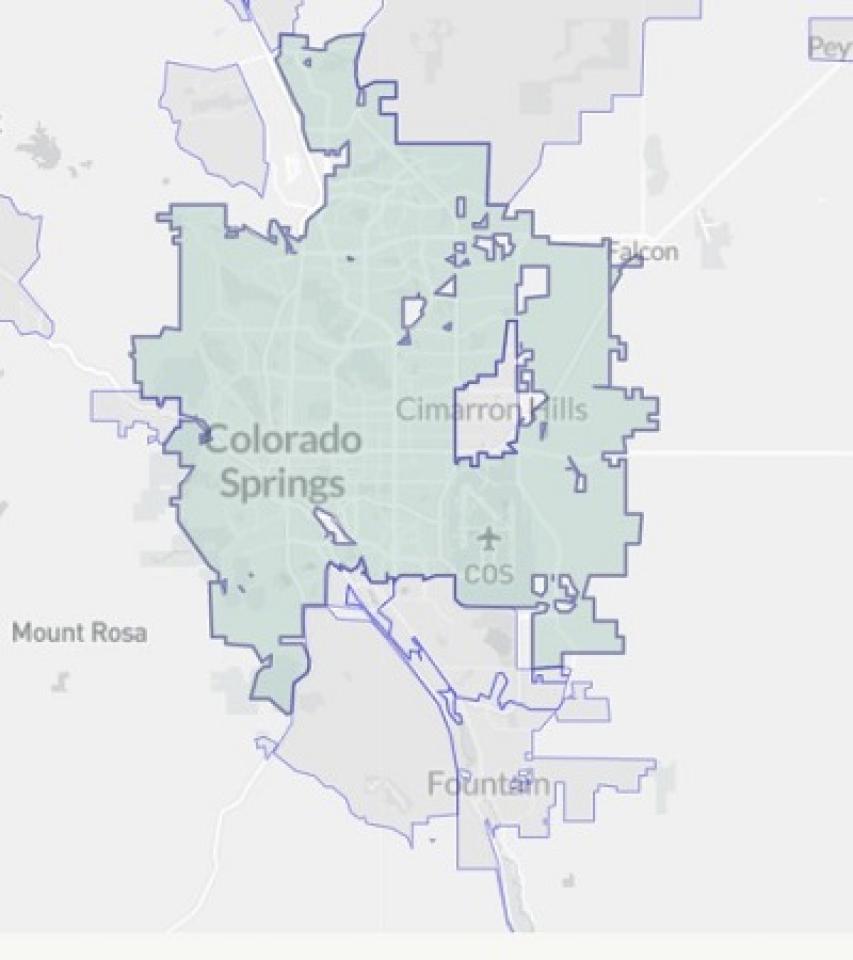
Back in January, Colorado Springs Utilities (CSU) announced it was going to begin building a city-wide, open access fiber network owned, and that Ting would be its first anchor tenant. Construction of the network is expected to begin in the third quarter of this year, with a target completion date of 2028 (originally planned for fifteen years). The network will provide multi-gigabit service to roughly 200,000 homes as well as city businesses and anchor institutions. It’s still early in the process, but projections at the moment have the utility spending $45 million to $100 million a year for the next six years to complete the project. The first phase will see 225 new fiber route miles laid.
CSU Has Long Used Fiber
For thirty years CSU has built fiber across Colorado’s second-largest city. CSU’s dramatic expansion of this existing network directly benefits the utility by reducing overall costs, improving infrastructure monitoring, and boosting overall utility network resiliency. And it all will come with no rate increases to CSU electric customers.
But the company’s decision to lease access to this fiber expansion also directly aids the local community by lowering consumer utility costs, and delivering universal, affordable, high-speed Internet access. It’s a significant boon to Colorado’s second largest city that’s now an attractive, high-tech growth market.

As part of the expansion, CSU has given Ting a 25-year lease as its first anchor tenant. It’s the agreement with Ting that allows CSU to dramatically speed up construction, injecting revenue right from the start. Google Fiber will also lease access to the network to provide fiber service to the city. Unlike open access networks like UTOPIA and Ammon, CSU contracts require that ISPs in Colorado Springs must lease the entire network, potentially driving up the potential cost for new market entrants but also ensuring that no residents are left behind. It will be a welcome boon for the city, currently served by Comcast and CenturyLink.
Recent broadband expansion in Colorado has been greatly aided by the removal of state-level municipal broadband restrictions. Like many state-level, telecom-backed laws crafted by telecom monopolies, Colorado’s SB 152 hamstrung the creation of government-owned community broadband alternatives. But unlike many such bills, it also included a measure allowing localities to opt out of any restrictions, which frustrated Colorado communities have done at a steady rate over the last five years.
While the law didn’t fully restrict all forms of community broadband, Colorado Springs residents overwhelmingly (61 percent) voted to opt out of the restrictions back in 2017. The reversal of the state restrictions also helped drive the creation of full, municipally owned networks like the NextLight fiber-to-the-home (FTTH) network in Longmont.
Ting Partners with Colorado Cities
Back in 2015, Tucows-owned Ting first announced it would be partnering with towns and cities to help expand U.S. access to affordable fiber. This recent announcement will result in a massive expansion of its footprint, with the lion’s share of it occurring across Colorado, thanks in part to cities opting out of community broadband restrictions.

In addition to municipal partnerships, Ting representatives say the company is also working on fiber builds in other parts of the state, including fiber deployments in Durango made possible by the company’s 2020 acquisition of Cedar Holdings Group. Work on the Durago network is expected to begin this spring, with the first multi-gigabit customers coming online later this year.
At the same time, Ting has also been steadily expanding its network build in Centennial, and recently announced a plan to deliver fiber to 100,000 new locations in the city of Aurora. Ting says the Aurora build is also slated to begin this Spring, with the first customers coming online before the end of the year. The CSU partnership represents the biggest for the company to date.
All told, 2022 should be a massive growth year for the company, with the company’s expansion in Colorado alone reaching 400,000 addresses.
“Today we currently have operations in seven states and, including Colorado Springs and Aurora, we have a presence—either operational or actively building—in 16 markets across the country,” Monica Webb, Ting’s Senior Director, Market Development & Strategic Partnerships, tells ILSR.
Tucows’ KPI summary indicates Ting’s owned infrastructure now passes 85,500 addresses nationwide. Its build scorecard indicates Ting currently has 25,545 subscribers. "We use several different operational models, and select whichever method is best suited for the individual community or network partner,” Webb said.
But the growth in Colorado Springs has drawn interest on other fronts as well. Austin, Texas-based Underline is also steadily deploying an additional new fiber network separate from the CSU initiative. It remains to be seen if the Underline deployment will stay completely separate from CSU’s network, though recent comments from the company suggest the municipal fiber build was unexpected.







